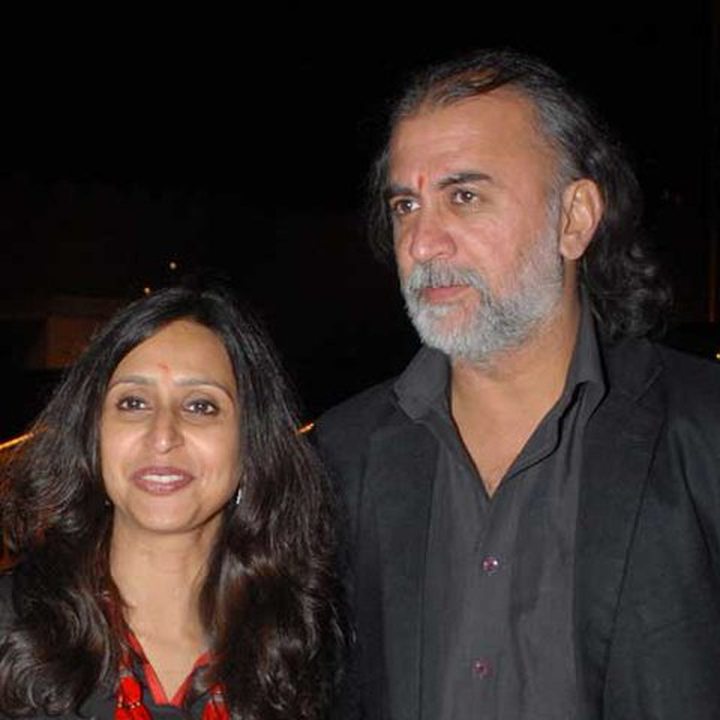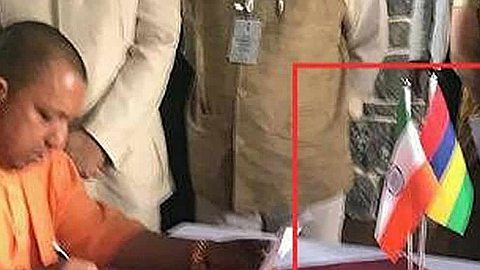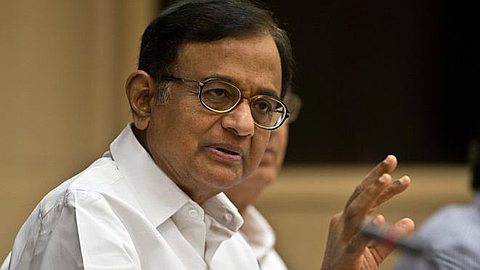Tarun Tejpal: Powerful and Pioneering Journalist

Tarun Tejpal, who has stepped down temporarily from his role, launched Tehelka magazine in 2000 as a website and soon began breaking some of the biggest stories in Indian history.
In 2001, it the revealed results of an eight-month-long sting investigation it named Operation West End in which some of its journalists posed as arms dealers, secretly filming senior army officials, bureaucrats and even the president of the then ruling Bharatiya Janata Party (BJP) taking bribes to push through a fake deal.
The story bought the Indian government to its knees.
That year, the now defunct Asiaweek magazine listed Tejpal, the son of a military father and graduate of Punjab university, as one of Asia's 50 most powerful communicators. BusinessWeek declared him among 50 leaders at the forefront of change in Asia.
Twenty months after the publication of the story, which was described as India's Watergate, the UK's Guardian newspaper called him India's "most feted journalist".
Tehelka's relaunch
Those days seem a distant memory now, as the 50-year-old journalist, publisher and author is embroiled in a sexual harassment case.
A young female co-worker and a close friend of one of his daughters has accused him of assaulting her inside an elevator of a five-star hotel in the coastal Indian state of Goa on two days in succession, 7 and 8 November, during a conclave organised by Tehelka and attended by newsmakers and celebrities.
As he stood aside, Mr Tejpal said a lapse of judgement and a misreading of the situation "led to an unfortunate incident that rails against all we believe in and fight for".
But as the case escalated he issued another statement urging the authorities to examine the CCTV footage "so the accurate version of events stands clearly revealed".
"There have been serious allegations cast on me in this last week, and unfortunately as sometimes happens in life, the complete truth and the need to do the honourable thing can come into conflict," he said.
Mr Tejpal, a media celebrity who today sports a white beard and often a pony-tail, launched Tehelka after a journalism career at rival publications such as India Today and Outlook.
Mr Tejpal married his wife Geetan, who is on the board of trustees at children's charity Salaam Balaak Trust, when he was 21 and she was 19,according to a Times of India interview with him back in April 2001.
They have two grown-up daughters, Tiya and Cara, who have both written for Tehelka.
Following the Operation West End sting, the government launched an inquiry which Mr Tejpal saw as an attack on the publication.
"I had expected a battle. But we had not anticipated its scale," he told the Guardian newspaper in 2003, when he was forced to lay off all but a handful of his staff and saw the jailing of Tehelka's main financial backer and the reporters who carried out the sting.
Eventually the website was forced to shut down, but it relaunched in 2004 as a newspaper, promoting what it called "free, fair and fearless" journalism, and became a weekly magazine three years later.
Mr Tejpal, in a 2001 article for Seminar magazine, wrote that in India, as a developing nation, financial scams grabbed more eyeballs than any other type of scandal, including sex scandals, which he said "comes way down in the hierarchy".
"Money misused, money siphoned off, money wasted - these are the things that hurt us," he wrote.
A sex scandal "means nothing... It is basically a first world indulgence, a means to group voyeurism and artificial excitement," he added.
'Generous and supportive'
Just over a decade later he finds himself at the centre of his own sex scandal at a time when India is trying to tackle the endemic problem of violence against women following the gang rape of a female student on a bus in Delhi last December.
Tehelka is known for its campaigning journalism
Mr Tejpal was also responsible for setting up India Ink, a publishing house which discovered Arundhati Roy, whose first novel, The God of Small Things, won the Booker Prize in 1997.
The imprint was later acquired by Roli Books.
After the sex crime allegations surfaced against Mr Tejpal, Ms Roy wrote a column entitled "This Is Rape Number 2" in Outlook magazine describing him as a friend for many years who had been "generous" and "supportive".
She went on to say she was left heartbroken on hearing about the incident in Goa - but also said she was not shocked.
As well as journalism, Mr Tejpal has turned his hand to fiction and written three novels, the last of which was published in 2011.
Nobel prize winning novelist VS Naipaul described his debut novel, The Alchemy of Desire, as "brilliantly original".
Reviewing the book, The Times Literary Supplement said Mr Tejpal was "one of the most attractive Indian writers in English of his generation".
It was also shortlisted for the Prix Femina, a French literacy award decided annually by an all-female jury, and won France's Le Prix Mille Pages for Best Foreign Literary Fiction.
The novel was also nominated for the 2005 Bad Sex Awards, a UK-based prize celebrating the most embarrassing passages of sexual description in a novel.
In a review, the UK's Sunday Times newspaper said "sex is practically a character in its own right" in the novel, "endlessly examined in all its luscious, experimental glory".
"At times this can get a bit much," the reviewer, Lucy Atkins, added.





